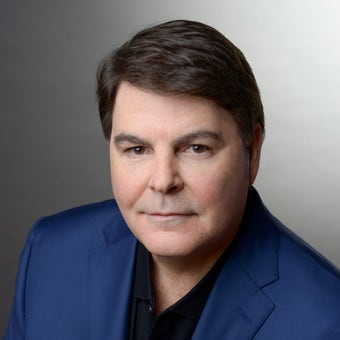This is a 'politically motivated witch hunt': Gregg Jarrett
'Hannity' panelists Alan Dershowitz and Gregg Jarrett discuss the potential indictment against former President Donald Trump and the cancellation of grand jury proceedings for a day.
The indictment of former President Donald Trump reportedly handed down by a Manhattan grand jury is sealed, so we don’t know the precise legal charges against the former president. However, based on leaks to the media from sources within the district attorney’s office, we can draw some reasoned conclusions.
Manhattan District Attorney Alvin Bragg has cobbled together a novel, if not bizarre, legal theory of intertwining offenses. It is doubtful that his case can withstand judicial scrutiny, assuming the judge who presides over the matter is objective and neutral.
The defense will surely file a motion to dismiss by arguing that the case is not supported by the law and that the alleged facts do not amount to a crime.
The district attorney accuses Trump of falsifying business records in the accounting of a payment made to porn actress, Stormy Daniels. By taking that dubious misdemeanor and coupling it with a purported campaign finance violation, Bragg seeks to elevate it into a felony. The law does not permit such arrant manipulations.
TRUMP INDICTED AFTER MANHATTAN DA PROBE FOR HUSH MONEY PAYMENTS
It is doubtful that the prosecutor will argue a state campaign crime because the 2016 presidential election was for federal office. At the same time, Bragg cannot cite a federal campaign violation because a local prosecutor can only charge under state statutes.
Regardless, the prosecution of Trump is likely barred by the statute of limitations. The misdemeanor is two years, while the felony is five years. Neither can be tolled or paused under a strict reading of New York law. Trump may have been outside of the state’s jurisdiction during much of the past seven years, but his whereabouts were well known, and he maintained his residency in New York while president, visiting it regularly. Hence, it is unlikely that the two statutes of limitations can extend beyond their expiration.
Bragg had no access to evidence, yet he prejudged an indictment that had not been brought and pre-ordained the grand jury’s outcome. The district attorney now wants to engineer a conviction by contorting the law.
Apart from the procedural obstacles, the merits of Bragg’s case are equally flawed. First, non-disclosure agreements in exchange for money are perfectly legal. Second, it would have to be shown that Trump himself was involved in falsifying records. Third, Bragg would have to prove that Trump not only understood the complex and convoluted campaign laws that few people comprehend but that he intended to violate them.
UNPRECEDENTED TRUMP INDICTMENT EVISCERATED AS 'LEGALLY PATHETIC'
The Department of Justice previously examined the Daniels payment and concluded there was no crime. So did the Federal Election Commission (FEC).
Why? Because the law does not regard such transactions as campaign donations. Even in the absence of a personal or commercial purpose —which Trump asserts— it still does not count as a contribution.
Bragg’s attempt to criminalize the Stormy Daniels episode is simply not supported by any credible evidence. Trump's disgraced former lawyer, Michael Cohen, arranged the payment.
In a February 2018 letter to the FEC he stated that "the payment in question does not constitute a campaign contribution" and that he acted on his own.
In April of 2018, he told his ex-attorney, Robert Costello, that Trump had no involvement and was unaware of the transfer of money. This is reflected in contemporaneous notes maintained by Costello and turned over to the district attorney.
Yet, Bragg appears to have concealed this vital information from the grand jury. When he testified, Costello says he was shocked that the panel has not been shown his voluminous files that corroborated Cohen’s original explanation and exonerated Trump. Withholding exculpatory evidence is an unconscionable act. It is the duty of a prosecutor to see that justice is done, not to gain an indictment and conviction. Hiding evidence is a serious breach of legal ethics.
CLICK HERE TO GET THE OPINION NEWSLETTER
Bragg’s reliance on Cohen —an admitted liar who went to prison, in part, for perjury— is also ethically suspect.
The disbarred lawyer is now peddling a different story and has made no secret of his hatred for Trump.
Cohen has every motive to spin more lies in his quest for retribution against his former boss. Is Cohen lying now or was he lying five years ago when he told authorities that Trump was never involved? Any half-decent defense attorney will easily shred such a dishonest witness on cross-examination, making Bragg look foolish.
The ethical imperative of a prosecutor is to be fair and equitable. Bragg is neither. He ran for office vowing to pursue Trump. He had no access to evidence, yet he prejudged an indictment that had not been brought and pre-ordained the grand jury’s outcome. The district attorney now wants to engineer a conviction by contorting the law.
The DA’s former assistant, Mark Pomerantz, who helped orchestrate Bragg’s feeble legal theory, penned a book openly admitting that Trump was targeted in a politically motivated investigation.
Pomerantz vented his contempt for the former president because "he posed a real danger to the country and to the ideals that mattered to me."
CLICK HERE TO GET THE FOX NEWS APP
Disagreeing with someone’s views or harboring personal animosity is not a basis for criminal prosecution. But Bragg has chosen to abandon the duty of a prosecutor to adhere faithfully to the principle of "equality under the law."
In so doing, he has weaponized the law for political gain. It is a disgraceful abuse of power.










































